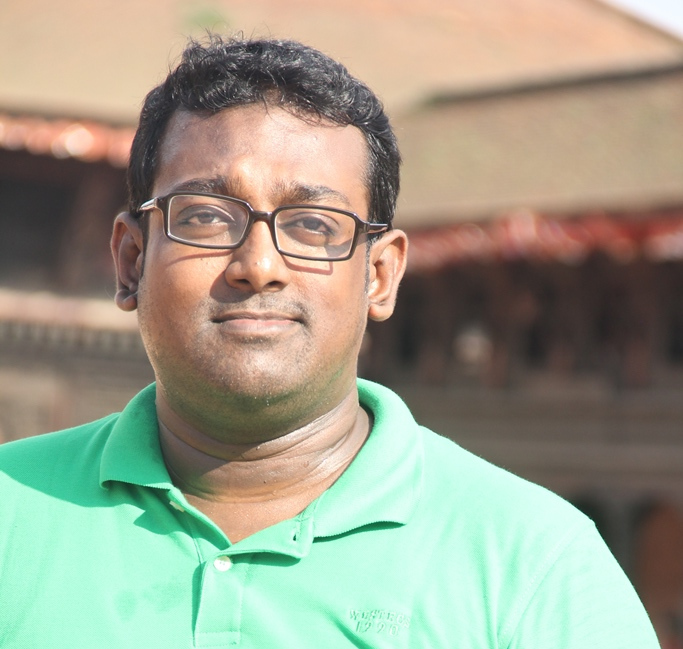
On 23 May 2020, Mahmudul Haque Munshi was unanimously elected as a new member of the board of directors at the general meeting of the Secular Refugee Aid Association. Munshi had fled to Germany in the autumn of 2015 after he was threatened as a religion-free and Islam-critical blogger in Bangladesh and survived assassination attempts, but lost several of his friends who were hacked to death with machetes in the street. The association’s board now consists of Rana Ahmad, Mahmudul Haque Munshi and Stefan Paintner. The non-profit association is thus a migrants’ self-organisation (MSO).
Mahmudul Haque Munshi has long been a member and supporter of the Association of Secular Refugee Aid and says of his commitment: “I want to give back to others some of the support I have been able to experience myself. In addition to the Secular Refugee Aid he also mentions with gratitude the support in difficult times by Reporters Without Borders, the Heinrich Böll Foundation, Center for Inquiry and Amnesty International. Munshi was born in 1987 in Jessore in western Bangladesh and was one of the main activists of the secular Shabag movement, which was founded in 2013 and demanded justice for war crimes committed by Islamic parties. Tens of thousands of people took to the streets to demand this. Shortly afterwards, however, Islamic parties and organizations launched a propaganda campaign against the bloggers and secular activists of the Shabag movement. As a result, since 2013 secular bloggers in Bangladesh have been hacked to death with machetes in the streets – including several friends of Munshi. He also received several death threats. In 2015 he fled to Germany together with his wife, who had worked in Bangladesh for the children’s charity Terre des Hommes. Hpd (Humanistischer Pressedienst) reported about him in 2016 in the article “Es war ein Albtraum” (It was a nightmare).
Munshi says about the work of the refugee aid organisation: “Secular Refugee Aid in Germany is like a second family for religiously persecuted people. We take care of the protection of the threatened people, we provide secure housing, because even if you have made it to Germany, for many the persecution by Muslim fanatics and clans does not end yet – in the initial accommodation facilities, but also in everyday life. Unfortunately, German politics often turns a blind eye to this.
Deutsche Welle quotes him in the article “Atheism is life threatening” with the statement: “The other day on my Facebook page I received 4500 death threats in a single day.” His name is on a “Global Hit List”, which lists the names of Bengalese refugees abroad who are to be killed. He lives with his family at an undetermined place in Germany.
Munshi is threatened by supporters of the Islamic State (IS), Al-Qaida on the Indian subcontinent (AQIS), Jamaat-e-Islami and the Bengali Ansarullah Bangla Team (ABT), among others. In the Times of India, he said that while he is on the Islamists’ murder list as a blogger and secular activist and is leaving Bangladesh, he will never remain silent because it means the victory of the fundamentalists.
The FAZ described how bloggers and activists in Bangladesh are being targeted by Islamists. The government does not protect them – but accuses the victims of denigrating Islam. It was a “fearful wait for the next murder”. The Islamists want to abolish democracy and introduce an Islamic state under the Sharia.
Therefore, Munshi, in his capacity as chairman, also wants to work to improve the human rights situation in Bangladesh, as well as in the other countries from which association members and affected persons have fled and continue to flee religious persecution, e.g. Afghanistan, Iran, Iraq, Saudi Arabia and Mauritania.
German politics could use its influence more strongly than before, he believes. He said that the German ministries and the Federal Government Commissioner for Human Rights and Religious Freedom had said quite a bit about the persecution of Christian people by Islamists, which was undisputedly an important issue, but hardly anything about the persecution of non-religious people by Islamists. He finds it unfair that in speeches and reports of the government the persecution of theists is mentioned far more often and clearly than the persecution of atheists. Just in a secular state like Germany this unequal treatment surprised him. “Everyone is human and has the same rights, regardless of whether the individual person is religious or not,” says Munshi.
As a board member, he wants to present the demands that the association has recently made to politicians. These are about effective protection in Germany, but also about better foreign and development policy with states where human rights are violated. Contacts of the association on working level already exist with some authorities and ministries. At a high-ranking level, the association recently held its first good talks with the Integration State Secretary Serap Güler in NRW. She had been very constructive and open. The association also hopes for open doors in other federal states, and in the Federal Government at the Foreign Ministry and the Ministry of Development, the Commissioner for Religious Freedom Markus Grübel and the Commissioner for Human Rights Bärbel Kofler. Munshi: “It is important that Germany shows backbone in its human rights policy. The voice of Germany is heard. Especially when Germany pays a lot of development aid to countries like Bangladesh and Mauritania, where there is severe religious repression and people like me have to flee. It should be in Germany’s own long-term interest, particularly there, not to duck away and remain silent. For otherwise Germany will strengthen the religious fundamentalists who are committed to the abolition of democracy and the spread of Sharia law, and not us, who as secular democrats stand up for freedom of opinion and universal human rights. (lbn)
About Mahmudul Haque Munshi
- Wikipedia
https://de.wikipedia.org/wiki/Mahmudul_Haque_Munshi
- Facebook
facebook.com/badhan71
- Twitter
@shopnokothok
- Interview with Deutschen Welle (01:27) vom 19. Dezember 2018 (German)
https://www.dw.com/de/mahmudul-haque-munshi-im-interview/av-46802031
- Podcast Aethervox Ehrenfeld (2:14:24) December 5th, 2019 (German)
http://xsxm.de/ave-291-mahmudul-haque-munshi




